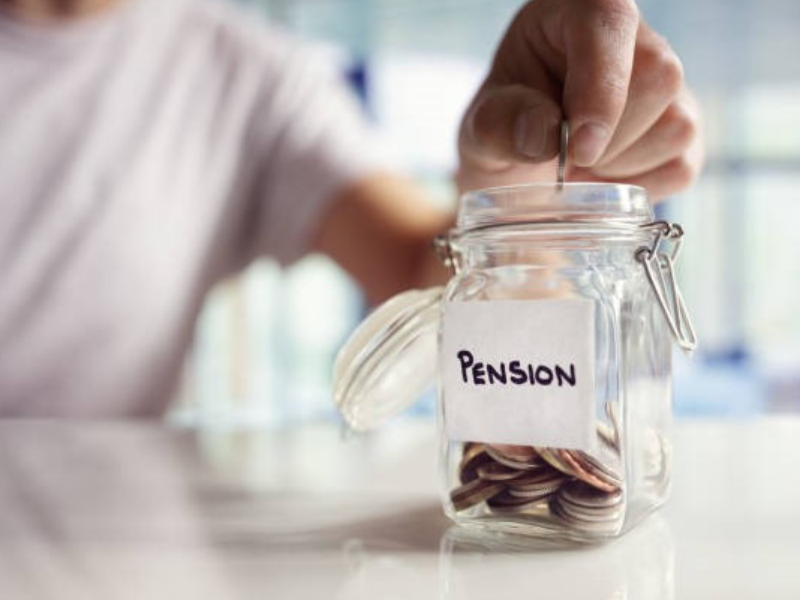
There are some significant personal financial developments in 2023 that could impact how you plan your finances. Here is a breakdown of what we know so far, and what to expect:
This one sneaked in. Beginning on January 31, anyone possessing non-barcoded stamps will discover they are ineligible for use. You may still use your stamps until July 31 due to a six-month grace period instituted by the Royal Mail. It implies that you must either use up the stamps or exchange them for fresh ones. After the grace period, everything sent out with an outdated stamp will be deemed to have inadequate postage.
Normally, the UK mainline rail fares increase in January. This year the government postponed the hike until March 5 due the current other economic pressures. However, subsequent ticket increases will be enormous relative to past trends, totalling 5.9%. The government announced a fare increase soon before Christmas that affects half of all tickets, including season passes. There is a chance that unregulated fares will increase much higher!!
As for TFL, there's no safety ground in London either. Sadiq Khan announced that from March, TFL will be increasing their transport for London fares across all services. The increase will be a similar proportion as the rest of the UK, as much as 6%.
Time is running out, with no announcement as of yet to extend the scheme. If you had previously applied for help to buy and been accepted by the closing date of 31st October 2022, you now have until 31st March to complete. Time to get on the phone to your conveyancers. There's no telling how any late-comers will be treated but it's certainly not a position you will want to be in.
With the start of the new tax year, the threshold at which individuals pay the highest rate of income tax (45%) will drop from £150,000 to £125,140. A person making £150,000 per year would now have to pay over £1,250 more in taxes annually as a result of the change.
Additionally, the basic and higher rates of income tax have been frozen once more, which means that people will pay more in taxes than they would have if the thresholds had increased as normal in line with inflation. It implies that everyone who receives a wage raise may face a higher tax rate in addition to the possibility of losing certain benefits, such as child benefit or personal allowance.
The new tax year will also bring a tax crackdown on investors, as the tax-free amounts for capital gains and dividends will be cut. It means the amount of dividend income you can receive before paying tax will be reduced from £2,000 to £1,000, costing a higher-rate taxpayer up to £338 more in tax. Meanwhile, the tax-free amount for capital gains will be chopped from £12,300 to £6,000, costing a higher rate taxpayer up to £1,260 a year more for non-property gains.
Ahead of the deadline it’s a good idea to move money into an ISA (or pension) if you have sufficient ISA allowance remaining. Alternatively, you could transfer assets to your spouse to use their allowances.
Local councils may now hike council tax by up to 5% without calling a referendum thanks to changes made by the government. The fact that many local councils are having financial difficulties means that many people may experience rises in their council tax bills up to this cap. The average Band D house in the UK will pay £2,064 in council tax year if rates rise by 5%; this is an increase of approximately £100 over 2022's costs.
The current iteration of the Government’s Energy Price Guarantee ends in April. It will be continued but the cap will be placed at a higher level, meaning that the average household energy bill for electricity and gas will rise from £2,500 a year up to £3,000 a year – although in reality lots of people will pay far more if their energy use is above average.
On top of this, the Government hasn’t said if it will be providing the universal £400 off energy bills that it handed out to every household in 2022 and if it is repeating the £150 council tax rebate. This means that the average household could face an extra £1,050 a year in energy costs from April.
Now, some April good news…
Starting in April, everyone receiving a state pension will get payments that are 10.1% higher. As a result, the basic state pension, provided to people who reached state pension age before to April 6, 2016, would grow to more than £8,000 per year, and the full flat-rate state pension will climb to over £10,000 per year for the first time.
Additionally, the child benefit and universal credit will also increase by the same amount.
5th April is the tax year deadline. Be sure to use your ISA savings allowance by this date. It's 'use it, or lose it'. As interest rates slowly increase, you can expect to see a higher return on your savings. Unfortunately, for some people, your personal savings allowance could be as little as £500. That means any interest you earn above your relevant tax bracket will be taxable at your income tax rate. Tax-free savings (ISAs) are gaining momentum again, don't lose 40% of your interest to HMRC.
Similar to 2022, some individuals will get handouts to help with living expenses, with the first payments starting in the spring. Those receiving some means-tested benefits, such as Pension Credit and Universal Credit, will get £301.00 in the spring, £300.00 in autumn, and then £299.00 in the spring of 2024.
This summer, recipients of incapacity benefits will receive a £150.00 handout, while pensioners will receive an extra £300.00 in their winter fuel payments (or in early 2024). Closer to the time, the precise payment windows and their associated qualifying periods will be disclosed.
Inflation is expected to continue to rise. That could not only make your weekly shop more expensive, but the figures are used across the year to calculate changes to benefits. Changes to benefit amounts are determined by the inflation figures, impacting benefits suc as, tax-credits and the state pension.
At some point, due to the nature of the calculation, inflation stats will drop off a cliff. It will be interesting to see when this finally does happen, and its impact on interest rates.
The Bank of England's inflation target is 2%, overnight the figures could drop. Should this happen, will the BOE leave interest rates unchanged so they can wean off quantitative easing? It will be at a consequence to house prices as eventually, interest rates will catch up with all borrowers. Many homeowners will be choosing to downsize. The housing market could see a drop in prices.
The Bank of England's monetary policy committee meet every 6 weeks to vote on interest rate changes.
Overall, there are some positives to look forward to for some and some not so positive, but it is a journey we are all going on together, and it will get better.
 Newcastle-under-Lyme, Staffordshire
Newcastle-under-Lyme, Staffordshire
 No minimum
No minimum  Free Consultations
Free Consultations





Our website offers information about financial products such as investing, savings, equity release, mortgages, and insurance. None of the information on Sunny Avenue constitutes personal advice. Sunny Avenue does not offer any of these services directly and we only act as a directory service to connect you to the experts. If you require further information to proceed you will need to request advice, for example from the financial advisers listed. If you decide to invest, read the important investment notes provided first, decide how to proceed on your own basis, and remember that investments can go up and down in value, so you could get back less than you put in.
Think carefully before securing debts against your home. A mortgage is a loan secured on your home, which you could lose if you do not keep up your mortgage payments. Check that any mortgage will meet your needs if you want to move or sell your home or you want your family to inherit it. If you are in any doubt, seek independent advice.